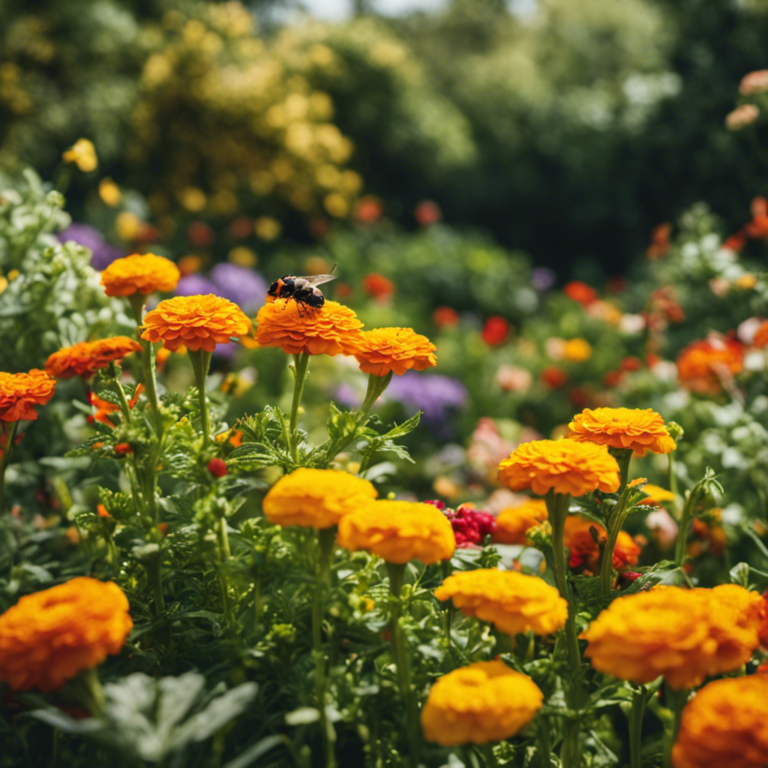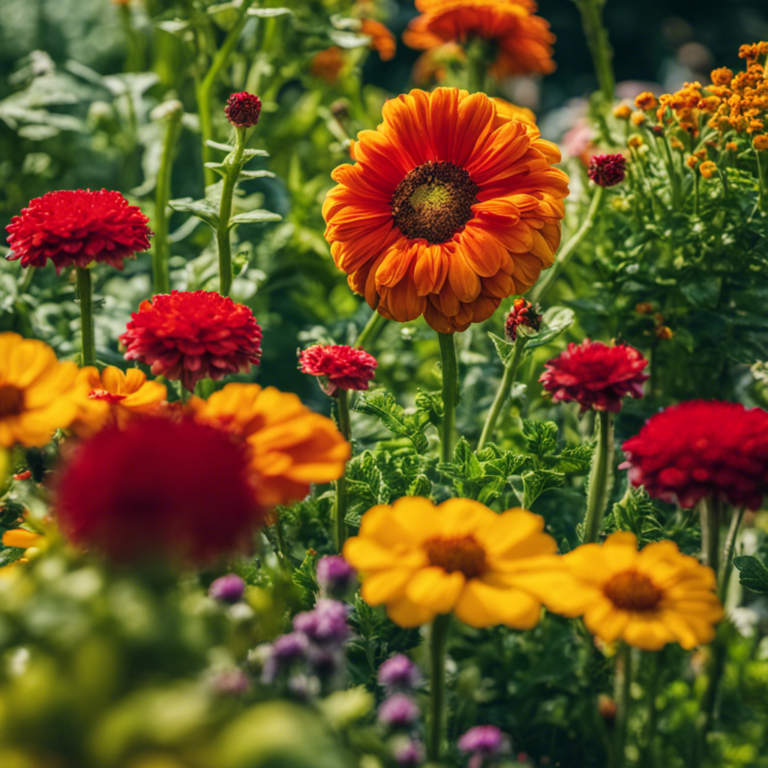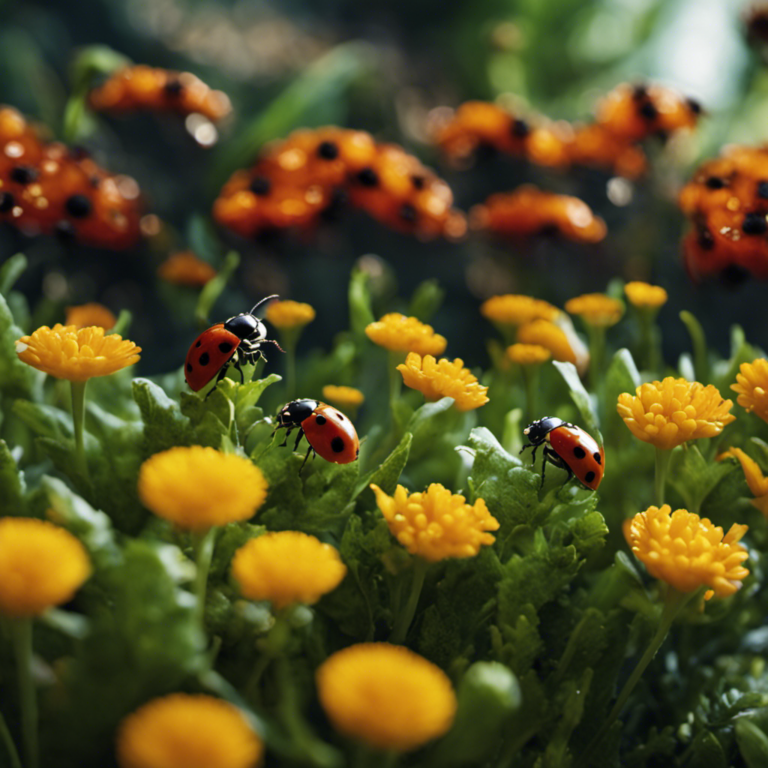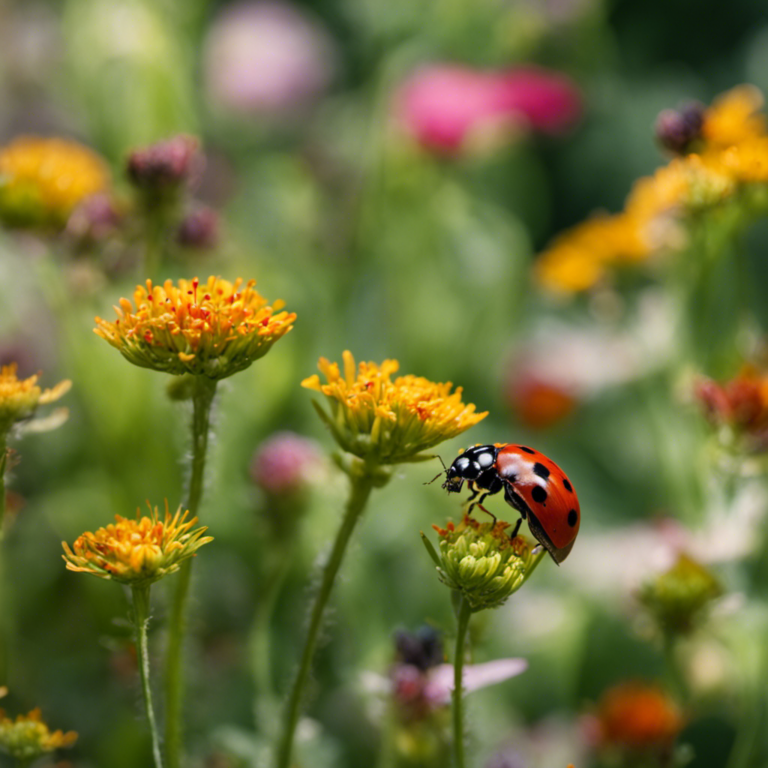Unveiling Nature’s Pest Control Secrets for Gardeners
Are pests causing problems in your garden? Discover the secrets of natural pest control. Learn about effective biological control methods, companion planting techniques, and natural predators that can help you manage those bothersome critters.
You’ll also find out how to make your own organic pest repellents and maintain the health of your soil to build resistance against pests.
This article will provide you with the knowledge you need to ensure a fruitful and pest-free harvest. Get ready to tackle garden pests with nature’s own solutions.
‘Nature always provides solutions if we’re willing to pay attention.’
Key Takeaways
Unveiling Nature’s Pest Control Secrets for Gardeners
The exploration of nature’s pest control secrets has revealed a fascinating world of biological control methods, companion planting, natural predators, and homemade organic pest repellents. By using these techniques, gardeners can effectively manage pests while preserving the delicate balance of nature.
Just like a skilled conductor guiding an orchestra, gardeners can coordinate a variety of pest control methods to create a harmonious and thriving garden. Let nature’s wisdom inspire your green thumb and witness the flourishing of your garden.
Biological Control Methods
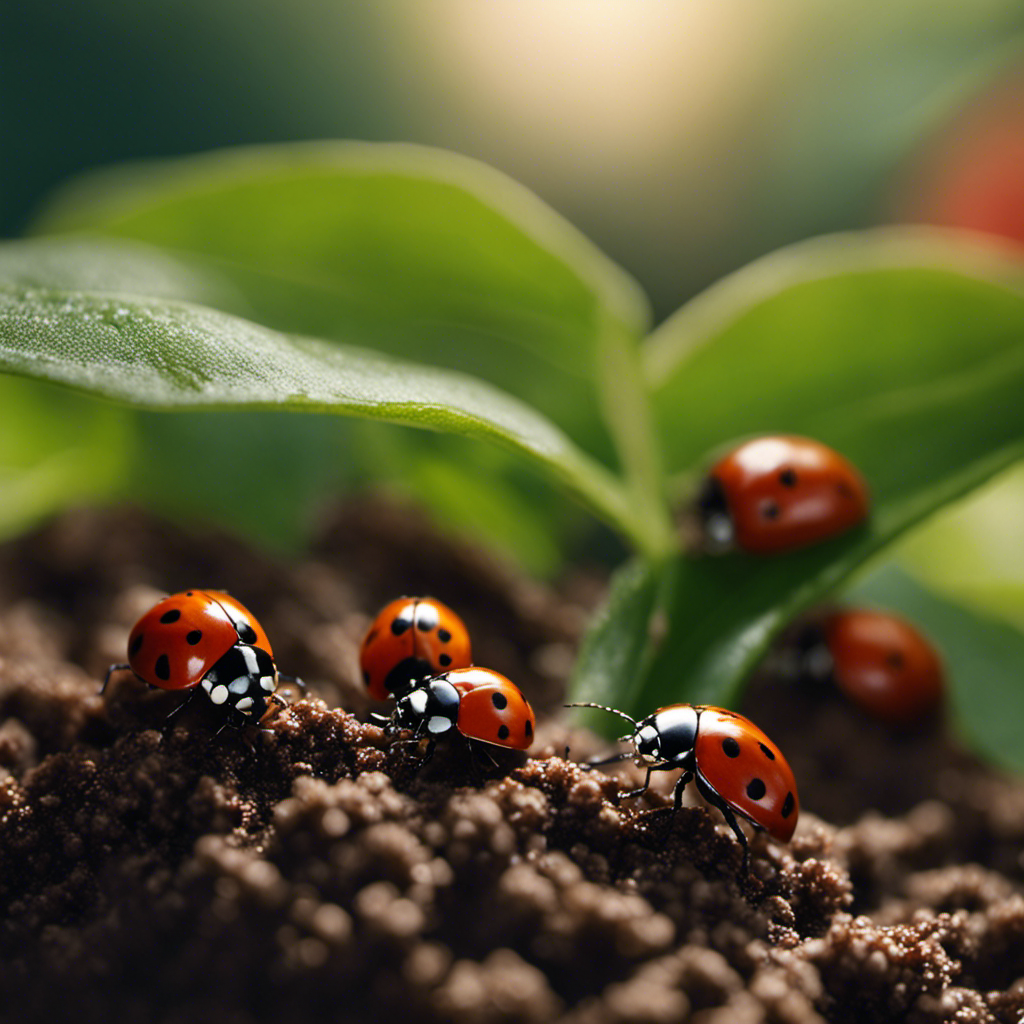
Using biological control methods to manage pests in your garden can be highly effective. Integrated pest management is a holistic approach that aims to minimize damage caused by pests while reducing reliance on chemical pesticides.
One important aspect of integrated pest management is the use of beneficial insects. These insects act as natural predators or parasites of pests, helping to control their populations by either feeding on them or laying eggs inside their bodies. Ladybugs, lacewings, and parasitic wasps are examples of beneficial insects commonly employed in biological control methods.
Companion Planting for Pest Prevention
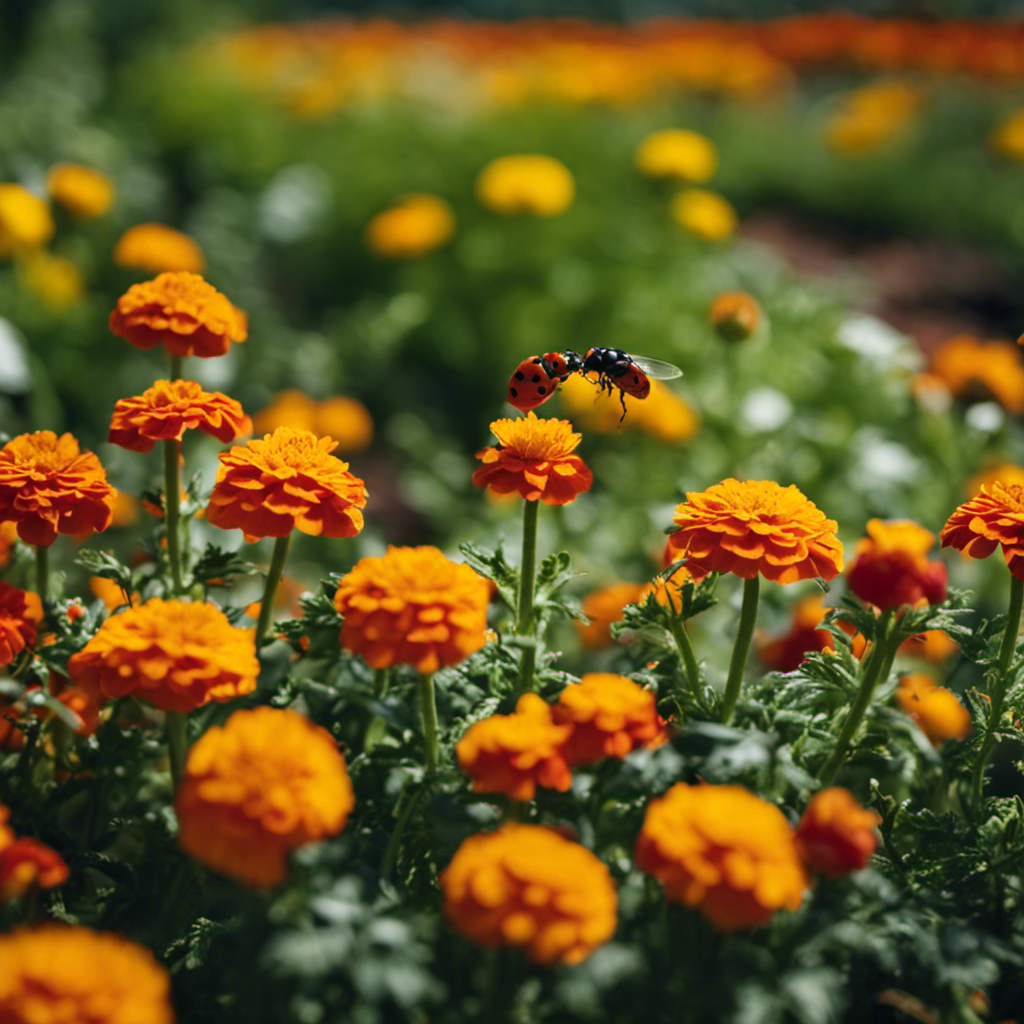
Using companion planting is a great way to naturally prevent pests in your garden. This technique involves planting certain crops together to enhance their growth and repel pests.
One effective method is to use pest-repelling herbs as companions. Herbs like basil, mint, and rosemary have strong scents that insects dislike. By planting these herbs alongside vulnerable crops, you can deter pest infestations.
For instance, planting basil near tomatoes can repel harmful insects such as aphids, hornworms, and whiteflies. Mint is known to repel ants and aphids, making it a suitable companion for lettuce and cabbage. Rosemary, on the other hand, can deter cabbage moths and carrot flies.
Natural Predators for Pest Management
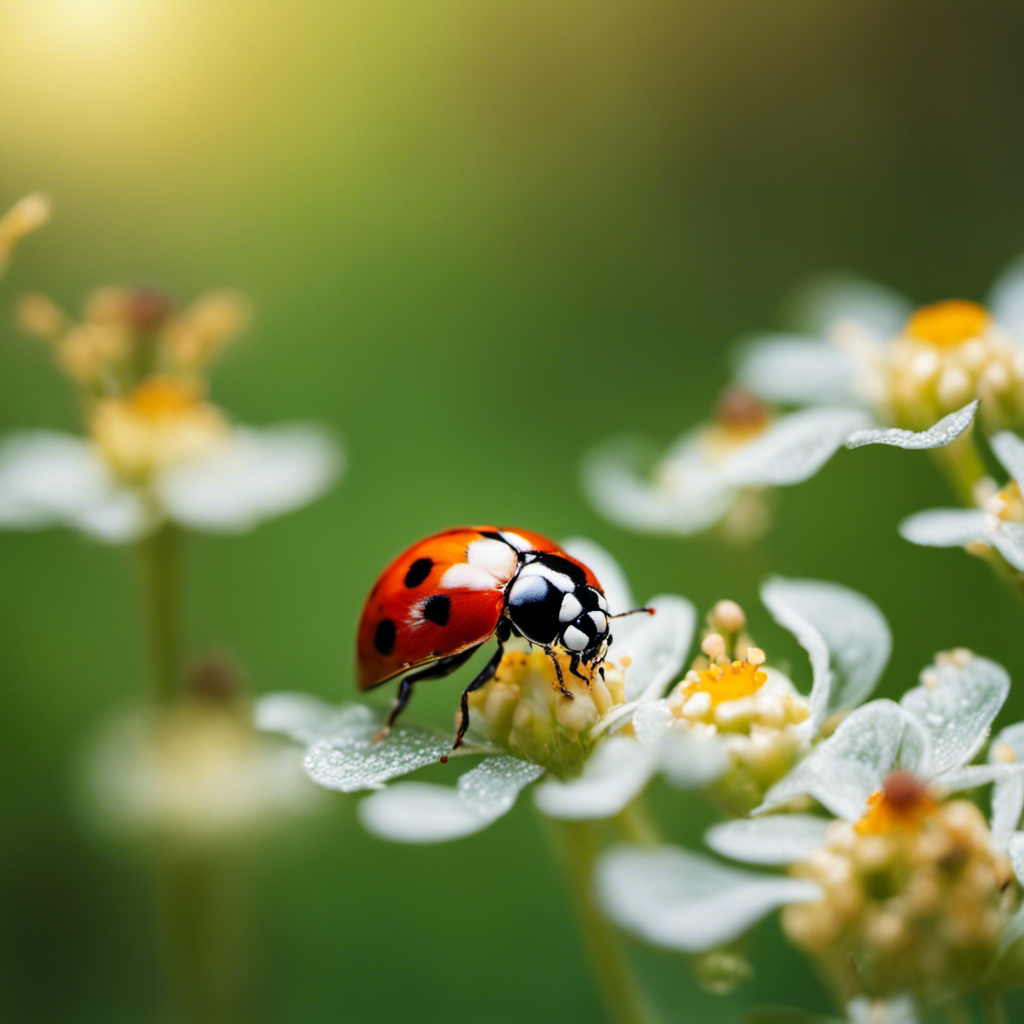
Natural Predators for Effective Pest Control
When it comes to finding natural ways to control pests in your garden, incorporating natural predators is a key consideration. These predators can play a vital role in managing pests without resorting to harmful chemicals.
Here are three effective natural predators that you can introduce to your garden:
-
Ladybugs: These small and colorful insects are excellent predators of soft-bodied pests like aphids and mealybugs. With their voracious appetite, they can consume hundreds of pests in a single day. Ladybugs are truly valuable allies in the fight against garden pests.
-
Praying mantises: Fascinating and skilled hunters, praying mantises are capable of capturing and devouring various garden pests, including caterpillars, beetles, and grasshoppers. They possess the remarkable ability to blend in with their surroundings and strike their prey swiftly.
-
Birds: Many bird species naturally prey on pests such as slugs, snails, and insects. By encouraging bird activity in your garden through the use of bird feeders, birdhouses, and water sources, you can significantly reduce pest populations.
By integrating these natural predators into your garden, along with pest-resistant plant varieties and integrated pest management strategies, you can establish a balanced ecosystem that effectively controls pests while minimizing the need for chemicals.
Homemade Organic Pest Repellents
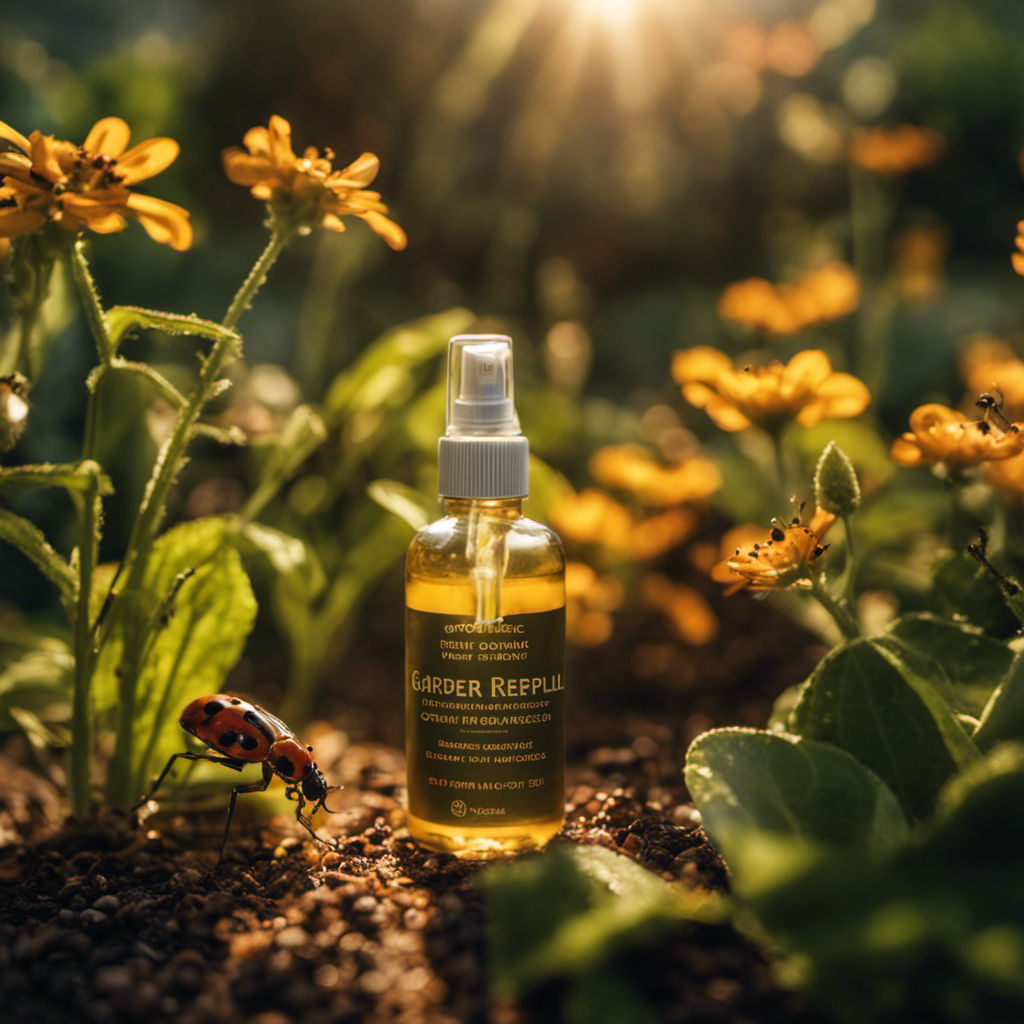
Make Your Own Organic Pest Repellents
You can easily create homemade organic pest repellents using common ingredients to protect your garden from unwanted pests. DIY pest deterrents are a cost-effective and eco-friendly way to ensure the health and prosperity of your plants. By opting for plant-based pest control methods, you can avoid the use of harmful chemicals that can harm both your garden and the environment.
Here are five simple recipes for homemade organic pest repellents that you can make at home:
-
Garlic Spray: Make a mixture of garlic, water, and liquid soap.
-
Neem Oil Spray: Mix neem oil, water, and liquid soap.
-
Chili Pepper Spray: Combine chili peppers, water, and liquid soap.
-
Citrus Peel Spray: Boil citrus peels in water and add liquid soap.
-
Onion Spray: Blend onions with water and liquid soap.
These DIY pest repellents work by either repelling pests or disrupting their feeding and breeding habits. Keep in mind that homemade organic pest repellents may need to be reapplied regularly for optimal effectiveness. Before applying the repellents to your entire garden, it’s always a good idea to test them on a small area of your plants.
Creating your own organic pest repellents not only helps protect your garden but also promotes a healthier and safer environment. Give it a try and see the positive impact it can have on your plants!
Maintaining Soil Health for Pest Resistance
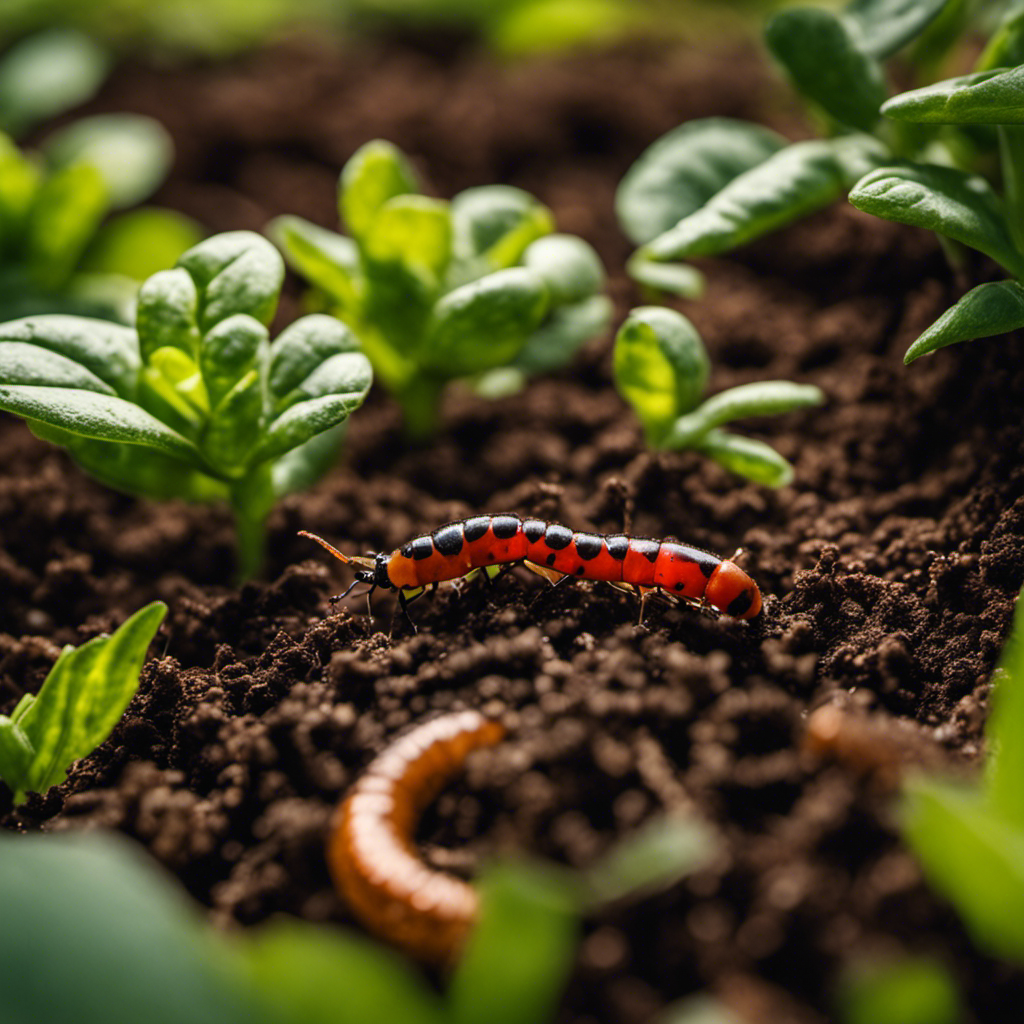
Maintaining Soil Health for Pest Resistance
One important step in maintaining soil health for pest resistance is regularly adding organic matter to the soil. Organic matter, such as compost or well-rotted manure, improves the soil’s structure and fertility, making it less vulnerable to pests and diseases.
Here are three additional strategies you can use to enhance the soil’s ability to resist pests:
-
Crop rotation: Rotating crops each season helps disrupt the life cycle of pests that target specific plants. By planting different crops in the same area, you create an unfavorable environment for pests and reduce their population, which ultimately minimizes damage.
-
Beneficial insects: Encouraging beneficial insects, such as ladybugs and lacewings, can naturally control pest populations. These insects feed on pests like aphids and caterpillars, helping to keep their numbers in check. Planting companion plants like dill and fennel can attract these beneficial insects to your garden.
-
Natural pest predators: Attracting natural pest predators like birds and bats can also help control pest populations. Providing nesting boxes and bird feeders can entice these predators to visit your garden and prey on pests that may harm your plants.
By incorporating these strategies, you can maintain soil health and create a garden environment that’s naturally resistant to pests. This reduces the need for chemical pesticides and promotes a healthier ecosystem.
Conclusion
Unveiling Nature’s Pest Control Secrets for Gardeners
The exploration of nature’s pest control secrets has revealed a fascinating world of biological control methods, companion planting, natural predators, and homemade organic pest repellents.
By utilizing these techniques, gardeners can effectively manage pests while preserving the delicate balance of nature.
Like a skilled conductor guiding an orchestra, gardeners can orchestrate a variety of pest control methods to create a harmonious and thriving garden.
So let nature’s wisdom inspire your green thumb and witness the flourishing of your garden.
